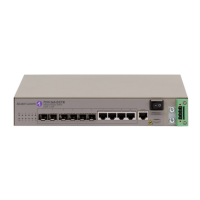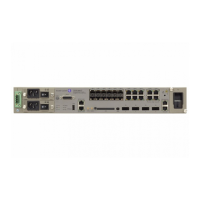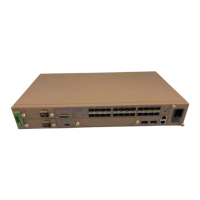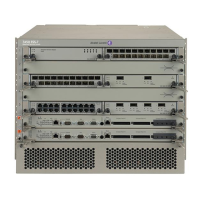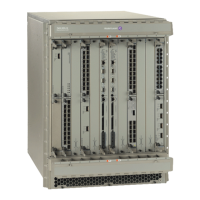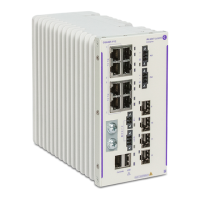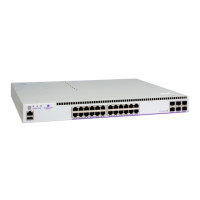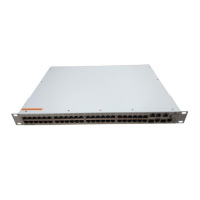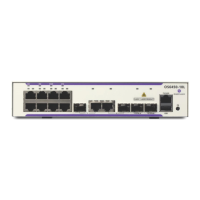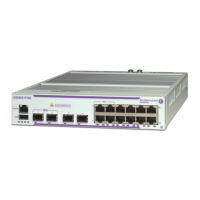MPLS Transport Profile (MPLS-TP)
Page 56 7210 SAS M, T, X, R6, Mxp MPLS Configura-
tion Guide
router
bfd
[no] bfd-template <name>
[no] transmit-interval <transmit-interval>
[no] receive-interval <receive-interval>
[no] echo-receive <echo-interval>
[no] multiplier <multiplier>
[no] type <cpm-np>
exit
The parameters are as follows:
• transmit-interval transmit-interval and the rx receive-interval: These are the transmit
and receive timers for BFD packets. If the template is used for MPLS-TP, then these are
the timers used by CC packets. Values are in milliseconds: 10ms to 100,000ms, with 1ms
granularity. Default 10ms for CPM3 or better, 1 sec for other hardware. Note that for
MPLS-TP CV packets, a transmit interval of 1 sec is always used.
• multiplier multiplier: Integer 3 – 20. Default: 3. This parameter is ignored for MPLS-TP
combined cc-v BFD sessions, and the default of 3 used, as per RFC6428.
• echo-receive echo-interval: Sets the minimum echo receive interval, in milliseconds, for a
session. Values: 100ms – 100,000ms. Default: 100. This parameter is not used by a BFD
session for MPLS-TP.
• type iom-hw type: This parameter controls the system to use the IOM based hardware
BFD session for the local termination point. Hardware based BFD session is enabled by
default, when BFD is configured for use with MPLS-TP LSPs.
Note that, if the above BFD timer values are changed in a given template, any BFD sessions on
MEPs to which that template is bound will try to renegotiate their timers to the new values. Note
that the BFD implementations in some MPLS-TP peer nodes may not be able handle this
renegotiation, as allowed by Section 3.7.1 of RFC6428 and may take the BFD session down. This
could result in undesired behavior, for example an unexpected protection switching event. It is
therefore recommended that in these circumstances, user of 7210 SAS exercises care in modifying
the BFD timer values after a BFD session is UP.
Commands within the BFD-template use a begin-commit model. To edit any value within the BFD
template, a <begin> needs to be executed once the template context has been entered. However, a
value will still be stored temporarily until the commit is issued. Once the commit is issued, values
will actually be used by other modules like the mpls-tp module and bfd module.
A BFD template is referenced from the OAM template. The OAM Template is configured as
follows:
config
router
mpls
mpls-tp
oam-template "state-machine-oam-template-prot"
bfd-template "state-machine-bfd-template-prot"
hold-time-down 0
